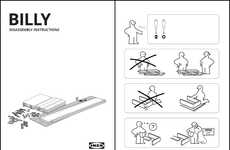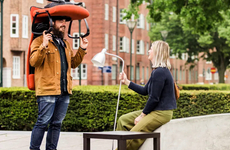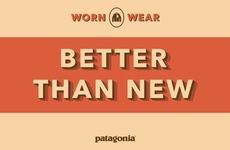
IKEA's Take Back Program Encourages Consumers to Recycle
Ellen Smith — June 26, 2018 — Eco
In an effort to encourage recycling, IKEA has launched a Take Back program which is inviting consumers to return the brand's unwanted furniture back to the store.
The new initiative, which is launching in Australia, will enable consumers to return used IKEA furniture back to the store and will receive store credit in exchange. IKEA will then re-sell the used pieces at a discounted price. To continue to incentivize recycling, IKEA is opening a pop-up shop in Tempe which will sell recycled products in an effort to promote a more sustainable lifestyle.
This contribution to the circular economy speaks to the rise of the conscious consumer and serves as IKEA's response to the demand to produce more ethically.
Image Credit: woman using self-service checkout stock photo via l i g h t p o e t/Shutterstock
The new initiative, which is launching in Australia, will enable consumers to return used IKEA furniture back to the store and will receive store credit in exchange. IKEA will then re-sell the used pieces at a discounted price. To continue to incentivize recycling, IKEA is opening a pop-up shop in Tempe which will sell recycled products in an effort to promote a more sustainable lifestyle.
This contribution to the circular economy speaks to the rise of the conscious consumer and serves as IKEA's response to the demand to produce more ethically.
Image Credit: woman using self-service checkout stock photo via l i g h t p o e t/Shutterstock
Trend Themes
1. Furniture Recycling - Disruptive innovation opportunity: Collaborate with furniture retailers to create incentivized recycling programs, encouraging consumers to return unwanted furniture for store credit.
2. Circular Economy - Disruptive innovation opportunity: Develop platforms and technologies that facilitate the reuse and resale of used furniture, promoting a more sustainable and environmentally friendly lifestyle.
3. Conscious Consumerism - Disruptive innovation opportunity: Create educational initiatives and services that empower and inform consumers about sustainable purchasing choices, supporting the growing demand for ethically produced products.
Industry Implications
1. Retail - Disruptive innovation opportunity: Integrate technology and sustainable practices into retail operations, such as developing online platforms for buying and selling used furniture and implementing recycling programs in stores.
2. Waste Management - Disruptive innovation opportunity: Innovate waste management processes to efficiently handle and process used furniture, focusing on recycling and reusing materials rather than disposal.
3. Sustainability Consulting - Disruptive innovation opportunity: Provide consulting services to businesses on how to establish sustainable practices, including implementing circular economy strategies and incentivized recycling programs.
4
Score
Popularity
Activity
Freshness























